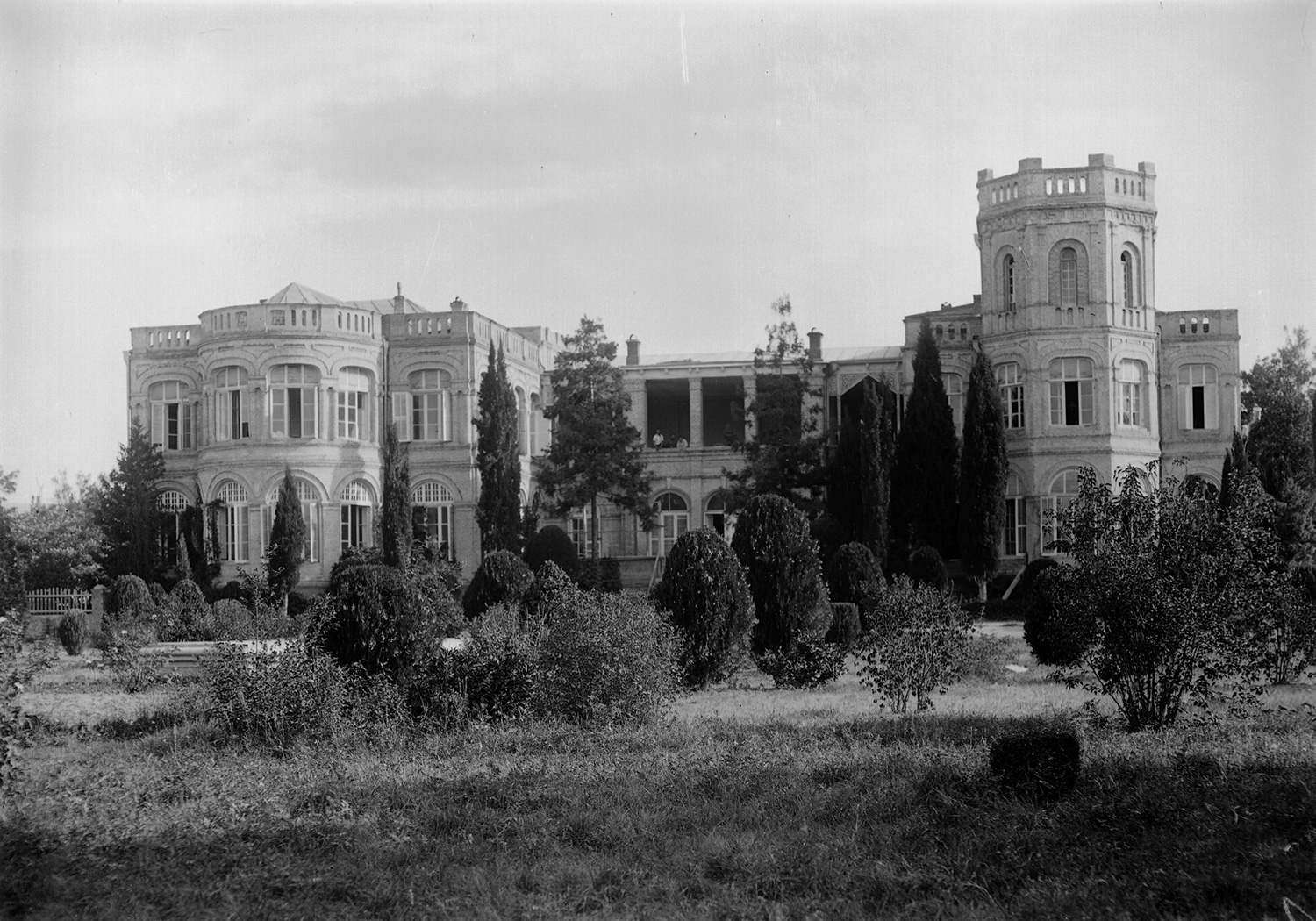|
Konstantine Bagration Of Mukhrani (1838–1903)
Konstantine "Kote" Bagration of Mukhrani ( ka, ·Éô·Éù·Éú·É°·É¢·Éê·Éú·É¢·Éò·Éú·Éî Éô·Éù·É¢·Éî·Éõ·É£·ÉÆ·ÉÝ·Éê·Éú·Éë·Éê·É¢·Éù·Éú·Éò, ''Konstantine oteMukhranbatoni''; 24 December 1838 ‚Äì 2 May 1903) was a Georgian nobleman, of the House of Mukhrani, and a military officer in the Imperial Russian service. Konstantine was born into the family of General Prince Ivane Bagration of Mukhrani and his wife, Princess Nino n√©e Dadiani. Like his father, whom he succeeded as the head of the House of Mukhrani, Konstantine was a military officer in the Russian service. He took part in the Crimean and Caucasian wars and rose to a regimental commander in the Russo-Turkish War (1877‚Äì78). Afterward, he retired with the rank of major-general and returned to the legacy of his father as a landowner and entrepreneur. Also, he was elected as Marshal of Nobility of the Tiflis Governorate The Tiflis Governorate was a province ('' guberniya'') of the Caucasus Viceroyalty of the Russian Empire wit ... [...More Info...] [...Related Items...] OR: [Wikipedia] [Google] [Baidu] |
Georgians
The Georgians, or Kartvelians (; ka, ·É•·Éê·ÉÝ·Éó·Éï·Éî·Éö·Éî·Éë·Éò, tr, ), are a nation and indigenous Caucasian ethnic group native to Georgia and the South Caucasus. Georgian diaspora communities are also present throughout Russia, Turkey, Greece, Iran, Ukraine, United States, and European Union. Georgians arose from Colchian and Iberian civilizations of classical antiquity; Colchis was interconnected with the Hellenic world, whereas Iberia was influenced by the Achaemenid Empire until Alexander the Great conquered it. In the 4th century, the Georgians became one of the first to embrace Christianity and now the majority of Georgians are Orthodox Christians, with most following their national autocephalous Georgian Orthodox Church, although there are small Georgian Catholic and Muslim communities as well as a significant number of irreligious Georgians. Located in the Caucasus, on the continental crossroads of Europe and Asia, the High Middle Ages saw Georgian people form ... [...More Info...] [...Related Items...] OR: [Wikipedia] [Google] [Baidu] |
House Of Mukhrani
The House of Mukhrani is a Georgian princely family that is a branch of the former royal dynasty of Bagrationi, from which it sprang early in the 16th century, receiving in appanage the domain of Mukhrani, in the Kingdom of Kartli. The family ‚Äî currently the seniormost genealogical line of the entire Bagrationi dynasty Montgomery-Massingberd, Hugh. " Burke‚Äôs Royal Families of the World: ''Volume II Africa & the Middle East'', 1980, pp. 58-67. ‚Äî has since been known as Mukhranbatoni ( ka, ·Éõ·É£·ÉÆ·ÉÝ·Éê·Éú·Éë·Éê·É¢·Éù·Éú·Éò), that is, "Princes ('' batoni'') of Mukhrani". An elder branch of the house of Mukhrani, now extinct, furnished five royal sovereigns of Kartli between 1658 and 1724. Its descendants bore the Imperial Russian titles of Prince Gruzinsky (–ì—Ä—É–∑–∏ÃÅ–Ω—Å–∫–∏–π, ·Éí·ÉÝ·É£·Éñ·Éò·Éú·É°·Éô·Éò) and Princes Bagration (–ë–∞–≥—Ä–∞—Ç–∏–æ–Ω, ·Éë·Éê·Éí·ÉÝ·Éê·É¢·Éò·Éù·Éú·Éò). Another branch, presiding in Mukhrani as ''tavadi'' and received among the princely nobilit ... [...More Info...] [...Related Items...] OR: [Wikipedia] [Google] [Baidu] |
Imperial Russia
The Russian Empire was an empire and the final period of the List of Russian monarchs, Russian monarchy from 1721 to 1917, ruling across large parts of Eurasia. It succeeded the Tsardom of Russia following the Treaty of Nystad, which ended the Great Northern War. The rise of the Russian Empire coincided with the decline of neighbouring rival powers: the Swedish Empire, the Polish–Lithuanian Commonwealth, Qajar Iran, the Ottoman Empire, and Qing dynasty, Qing China. It also held colonies in North America between 1799 and 1867. Covering an area of approximately , it remains the list of largest empires, third-largest empire in history, surpassed only by the British Empire and the Mongol Empire; it ruled over a population of 125.6 million people per the Russian Empire Census, 1897 Russian census, which was the only census carried out during the entire imperial period. Owing to its geographic extent across three continents at its peak, it featured great ethnic, linguistic, re ... [...More Info...] [...Related Items...] OR: [Wikipedia] [Google] [Baidu] |
Ivane Bagration Of Mukhrani
}, ''Ivan Konstantinovich Bagration-Mukhransky'') (February 7, 1812 – March 11, 1895) was a Georgian nobleman of the House of Mukhrani, and general in the Imperial Russian service. He was one of the biggest Georgian landowners of that time and a modernizer of winemaking industry. Biography Born into a prominent aristocratic family of Constantine IV, Prince of Mukhrani and Princess Khoreshan née Guramishvili, Ivan Bagration was educated at St. Petersburg Page Corps and enlisted in the Nizhny Novgorod Dragoon Regiment in 1830. He participated in several expeditions against the rebellious mountaineers during the Caucasus War. In 1848, he was promoted to colonel and appointed commander of the Erivan Grenadier Regiment of the Russian Imperial Army located in Manglisi, Tiflis region. He became major-general in 1851 and scored his most notable achievements during the Crimean War (1853–1856), when Bagration, being in command of the Caucasian Reserve Grenadier Brigade, played a decisive ... [...More Info...] [...Related Items...] OR: [Wikipedia] [Google] [Baidu] |
Crimean War
The Crimean War, , was fought from October 1853 to February 1856 between Russia and an ultimately victorious alliance of the Ottoman Empire, France, the United Kingdom and Piedmont-Sardinia. Geopolitical causes of the war included the decline of the Ottoman Empire, the expansion of the Russian Empire in the preceding Russo-Turkish Wars, and the British and French preference to preserve the Ottoman Empire to maintain the balance of power in the Concert of Europe. The flashpoint was a disagreement over the rights of Christian minorities in Palestine, then part of the Ottoman Empire, with the French promoting the rights of Roman Catholics, and Russia promoting those of the Eastern Orthodox Church. The churches worked out their differences with the Ottomans and came to an agreement, but both the French Emperor Napoleon III and the Russian Tsar Nicholas I refused to back down. Nicholas issued an ultimatum that demanded the Orthodox subjects of the Ottoman Empire be placed ... [...More Info...] [...Related Items...] OR: [Wikipedia] [Google] [Baidu] |
.jpg)


